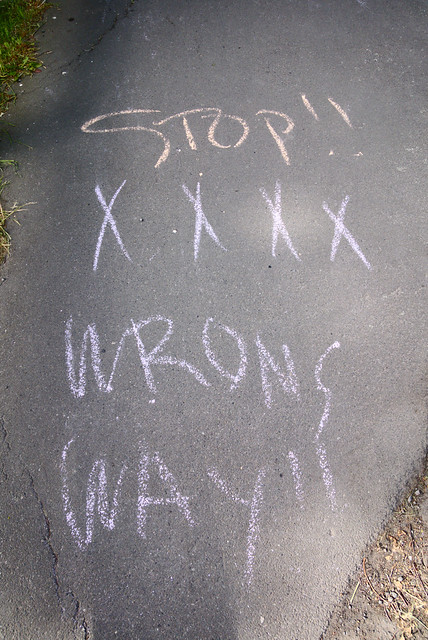RECENT ARTICLES
- CEBRA: An optimised and standardised sampling protocol for BioBlitz
- Stop it people, the plural of anecdote IS data!
- That's no pollinator, that's a flower visitor
- Add a scale to your macro photos
- What to photograph when counting the wild
- Imagine counting the wild on EVERY street in a city!
- My wild counting workflow
- A butterfly flew through
- Why iNaturalist observations without photos can be research grade
- Why you shouldn’t use a spreadsheet for data entry
- All articles ...
Now You meet Future You
What would the Future You want you to do now, to make your wild counts more informative in the future?
written May 20, 2018 • by Jon Sullivan • Category: Wild Counting


If you’re committed to counting the wild long term, then there’s someone you’ve got to meet. It’s you, in the future. It’s well worth taking the time to cast forward and think about what Future You will think of what Now You is doing. What will Future You wish that Now You had written down? What will they wish you’d done differently? What questions and suggestions would they have?
There are a few things we can be sure about Future You. Importantly, they’ll have more expertise in wild counting than you do. All those years of experience will make them better at identifying more species, and finding them too. That’s important because you’ve got to think now about how that could bias the long term trends that will emerge from your wild counts. More on that soon.
Future You will also have access to improved technology for recording observations, and also for curating and sharing and analysing observations (including Now You’s observations). That’s important because Future You might be well equipped to deal with kinds of observations you couldn’t possibly afford to process now.
For example, they could easily have access to tech that can automatically transcribe data from thousands of spoken audio notes or identify species in thousands of photos or audio recordings, or sequence DNA from thousands of samples. It’s well worth thinking about what the tech-powered Future You would wish that Now You had recorded or collected.
If we cast ahead far enough, Future You will also by physically less able, with worse eye sight, hearing, and mobility. Depending on where you are in your life, Future You may also be a good deal more tired and stressed than you, if they’re juggling work demands and young children, or quite the opposite if they’ve retired. You’ll need to think about whether your wild counting methods are robust enough to reveal long term trends when made by such different Future Yous.
In my case, I decided in May 2014 that Future Me will surely be able to automate the transcription of audio notes. That allowed me to greatly increase the frequency, precision, and taxonomic breadth of my counting by making thousands of datetime-stamped and geotagged audio notes every week. Goodbye pen and paper. Online auto-transcription services are getting rapidly better now and I fully expect to soon be able to accurately transcribe these noisy outdoor audio notes.
I also switched all my counts to distance sampling (in distance bands), and I always separate my counts of things I see first, or hear first, or hear only. That gives Future Me a chance of calibrating for changes in my eye sight or hearing as I get older. If my hearing gets worse, my data will show fewer birds heard first, especially in the more distant distance bands. If my sight gets worse, I will start counting less in the more distant distance bands. I will also have a higher proportion of observations with uncertain identifications, especially further away. In this way, my counts should be robust to changes in my hearing and vision.
I know that Future Me would also like Now Me to be collecting lots of tissue samples for future DNA work. However I’ve not figured out a simple way to do that yet. For example, taking tissue samples of native roadkill birds would require getting and maintaining a research permit, which would not be simple. I’m sure that the Future Me would also like vast amounts of audio and video data from which species could be automatically identified and counted. Doing that across a large enough grid of stations to be useful would still be costly.
Now Me and Future Me are still talking about these things. The key thing is to keep talking with Future You, and keep thinking about what simple and easy things you can do now that Future You could use.
Consider this an opportunity to take a moment to meet Future You and talk about wild counting. They’ll be grateful for what you can do for them.
